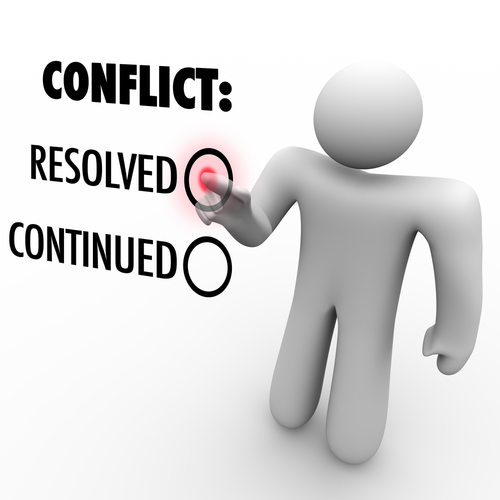One of the key ingredients of your leadership quotient is the ability to solve conflicts efficiently and to make sure that you are on the same page with the people you work with. Challenging each other’s views is beneficial for both parties as it provides an opportunity to learn but only if it doesn’t bring negative emotions into the discussion.
Here are a couple of things to keep in mind for the next time you have an argument with someone.
Constructive criticism
Blaming and pointing the finger at someone never leads to a positive outcome and it can seriously harm your reputation in a professional environment. Aim to ask challenging questions instead of emphasizing the person’s mistakes on the opposite side of the table. Take time to listen and understand their opinion before you try to convince them! Instead of saying The product was delivered with a huge delay because of your negligent behavior you might ask We didn’t meet our deadlines. What do you think could have been done better?
Notice the difference between the two sentences: after the first statement your coworker might get defensive immediately and focus on finding an excuse or fire back at you with something you got wrong. To the contrary, asking an open-ended question gives room for developing better processes. Your colleague might even apologize and come up with ways that could improve the cooperation between the two of you.
However, when you face criticism you need to keep in mind that it is not a judgement about who you are, but something you have done and consequently it is just an issue that needs fixing. Don’t let it define you! Everyone makes mistakes and the easier you face your failures the more you grow as a person and a leader.
Emotional Intelligence is key
We are all emotional human beings and our feelings often stand in the way when we try to solve a conflict appropriately. The higher the level of stress in our environment and the more we feel pressed with time the harder it is to remain sane in these situations. Especially when we stand in the line of fire surrounded by people with critical point of views, which create a situation that requires a quick response. It is challenging to remain calm in these instances and focus on the solution rather than a counter argument.
Take a deep breath and try not to take things personally! Put yourself in the other person’s shoes and understand why they make the points they make and what frustrates them. Instead of focusing only on winning, think about how you could come to a conclusion which is best for the company and suitable for everyone. You can allow yourself to be vulnerable once in a while: It takes bravery, but it often leads to resolving the tension between team members so that you can discuss everything in an assertive way.
When there is a lot at stake
There will be times when you negotiate with people in a win or lose situation and an understanding attitude won’t be good enough to reach your goals. Gather all information possible prior to the meeting –you can never be over-prepared! Ask help from a colleague if needed and practice the situation just like you would do a mock trial before heading to the courtroom.
Try not to use the word but in your arguments! Substitute it with yes, however or simply the word and so that your opposition won’t feel the need to fire back at you and prove the validity of his words. Ask surprising questions if you need to win some extra time and notice when people try to divert the conversation and stay away from a certain subject because that’s the very thing they are trying to hide.
No matter if you are facing a competitor or someone from your team, always remind yourself of the possible motives one could have and learn to read between the lines. Be assertive and don’t jump into arguments when you’re in a negative mood! Staying mindful about your emotions is a sure way towards gaining respect as a leader.


Recent Comments